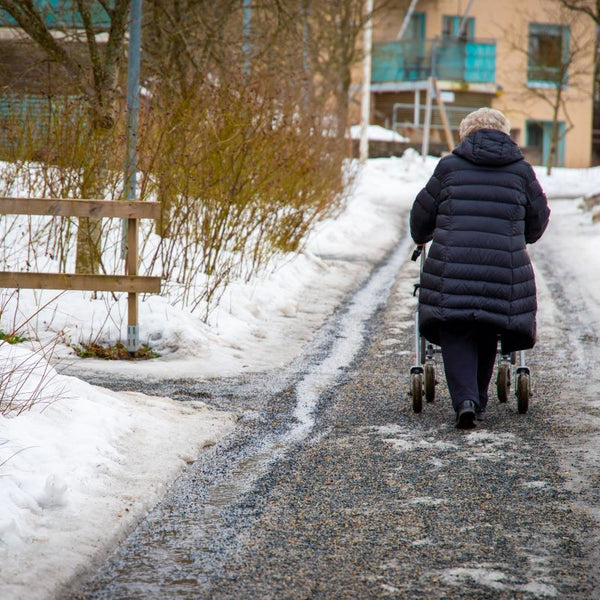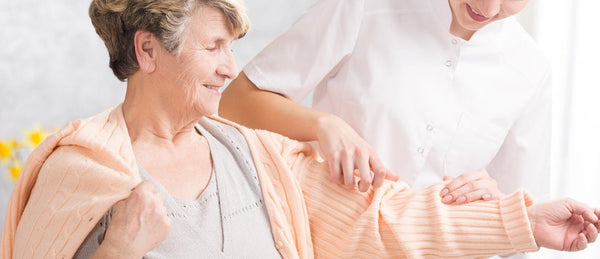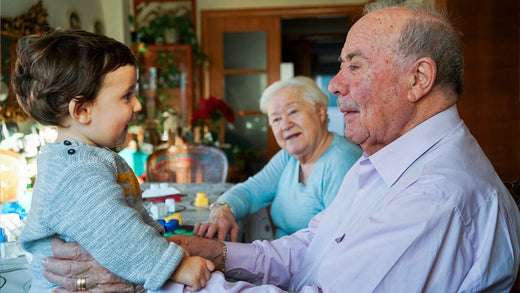For many customers, a personal alarm means they can remain independent in their own home and they wouldn’t be without the service.
However, if you have never used a personal alarm before, you may have concerns about the cost or how it works. That's why we have compiled this list of common myths and preconceptions people have about personal alarms.
Myth 1: Personal alarms only work indoors
The alarm pendant can work up to approximately 300 metres (984 ft) away from the alarm unit, which means you should be able to use it in the garden, as well as around the house.
If you trip or stumble whilst you are in the garden, you want to be confident that you can still call for help so we recommend our customers perform a range test when setting up the service. GPS alarms work wherever there’s mobile reception.
Myth 2: Personal alarms are difficult to set-up
Setting up your personal alarm is simple, and we provide clear instructions with the equipment. Most of our customers prefer to set up their alarm themselves, but you can always ask a friend or family member for assistance. Alternatively, our Customer Services team is happy to help.
Myth 3: Personal alarms are cumbersome and uncomfortable to wear
Comfort and style are important considerations for many people. Some people don’t like the idea of wearing a personal alarm, like Alice’s gran in this customer testimonial. However, like Alice’s gran found, the vast majority of customers would not be without the service and appreciate the security and peace of mind it provides to them and their families.
Taking Care personal alarms are designed to be comfortable so they can be worn 24/7. They can be worn like a watch or around the neck, depending on your personal choice.
Myth 4: Personal alarms can go off accidentally
You will only call our monitoring centre if you press the emergency alarm button and it is not a problem if this happens. We want our customers to test their personal alarms and encourage them to contact us quarterly to ensure the service is working correctly. You won’t be wasting our time and our friendly Emergency Resolution Team will understand.
Myth 5: Personal alarms can’t be worn in the shower
Unfortunately, slips are common in the bathroom where water can be a hazard. The alarm pendant is water resistant, so you don’t need to take it off in the shower. We don’t recommend you go swimming with it though! The alarm won’t work if it has been submerged in water. If the alarm gets wet and you are unsure if it still works, just press the button to place a test call.
Myth 6: Personal alarms have been replaced by mobile phones
Mobile phones are a great way of staying in touch with family members and can of course be useful in an emergency. However, you may not always carry your mobile or keep it charged. In an emergency, your contacts may not be able to respond, or you may not be able to dial a number.
In comparison, our in-home personal alarm pendant can be worn 24 hours a day and does not need to be charged. It has a simple to use emergency button that when pressed, calls our 24/7 monitoring centre that is based in the UK. Read more in our personal alarms vs mobile phones guide.
Myth 7: Personal alarms don’t work in a power cut
The Taking Care personal alarm has a back-up battery that means it will work in a power cut. Once power is restored, the battery will charge up again.
Myth 8: Personal alarms are free
Some local councils do offer a free service; however you often have to meet certain criteria or live in a specific area. Local council budgets are increasingly under pressure and some may not be able to offer this service. Other local councils may charge for their personal alarm service.
Myth 9: Personal alarms are expensive
Many people assume a 24-hour monitored service is more expensive than it is. In fact, the service is considerably cheaper than other home care options. Personal alarms have a zero VAT rating, which means if you, or the person who you are buying the service for, are chronically sick or disabled then you may not have to pay VAT on your order.
Myth 10: Personal alarms are all the same
Comparing personal alarms can be difficult; however it is important to consider the service you will receive as well as the equipment. Telecare accreditations, ISO quality standards and the range of products and solutions available from your chosen provider are important. You should consider the emergency response rates so you are confident that you will receive the service you expect should there be an emergency.
We aim to answer personal alarm calls within 30 seconds and our customers recommend our personal alarm service. Taking Care are a member of the Telecare Services Association and ISO 9001 accredited. We offer a range of smart home monitoring solutions and fall alarms.

Compare personal alarm companies and read reviews of personal alarms to understand the differences between telecare providers.
Myth 11: Personal alarms are only for the elderly
Alarm pendants are commonly used by the elderly and older people because they provide the support needed to remain independent and are a lifeline in an emergency. However, not all alarm customers are elderly. Personal alarms can be used by anyone who wants to get help quickly. The service may be useful for someone who lives alone, has a long-term medical condition, is recuperating at home after leaving hospital or is unsteady on their feet.
GPS trackers give people living with dementia more freedom but can also be used by children and other vulnerable groups.





